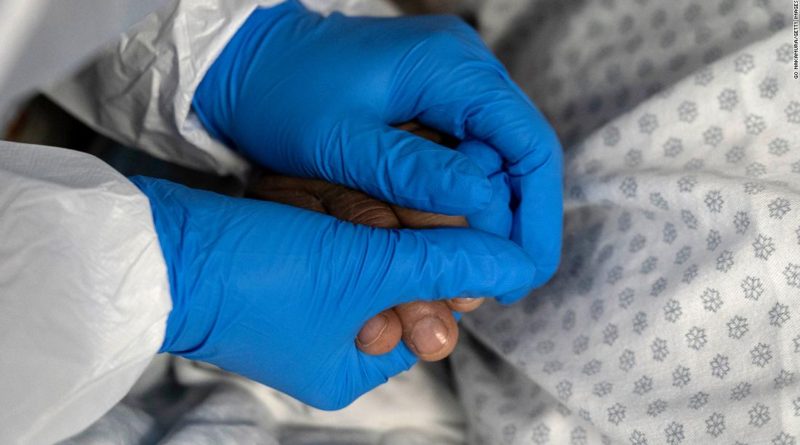US coronavirus: 20,000 more people could die in next 3 weeks, CDC ensemble forecast shows
The CDC says new deaths are likely to increase in Alabama, Kentucky, New Jersey, Puerto Rico, Tennessee and Washington. Some of these states previously reported progress in their coronavirus numbers but are now raising their alarm again.
In New Jersey, officials reported there were no deaths in hospitals for at least 24 hours Thursday for the first time since early March. But as the state recorded this “extraordinary milestone,” Gov. Phil Murphy said, daily cases rose since last month. At the end of June, positive coronavirus cases averaged around 350 a day and that number jumped to 550 at the end of July.
“Everyone who walks around refusing to wear a mask or who hosts an indoor house party or who overstuffs a boat is directly contributing to these increases. This has to stop and it has to stop now.”
Expert: More masks could mean more lives saved
Despite a surge in cases in the past several weeks, experts insist the ways to curb the spread remain simple: avoid gatherings, social distance and wear a mask.
While some young people in the US continue attending social gatherings, they may be bringing the virus back home unknowingly, experts have said, as many young people are asymptomatic.
Washington is one of at least 39 states that have some type of mask mandate in place. But even with the mandates, not nearly enough Americans needed to bend the curve for the infection rate are using face masks, one expert said Friday.
“We’re getting close to about 55% of Americans wearing a mask,” said Dr. Chris Murray, a researcher behind an influential coronavirus model from the University of Washington. “That’s good news, but of course it’s a long way to go before we get to the levels like Singapore has at 95%, which would really save a lot of lives in this country.”
Researchers in Texas reported that just two weeks of social distancing policies cut the spread of the virus by about 65% globally, preventing more than 1.5 million new cases.
“We found that states observed significant reductions in transmission rates following the implementation of social distancing policies, compared to states without such policies,” Daniel McGrail, a postdoctoral fellow studying systems biology, said in a statement.
“In fact, two of the smallest reductions in spread were seen in states without social distancing policies.”
GOP Convention in Charlotte closed to the press
In a move unprecedented in modern American political history, reporters will not be present when Republican leaders vote to formally nominate President Donald Trump as the 2020 Republican presidential nominee in Charlotte, North Carolina.
The already scaled-down Republican National Convention later this month will be closed to the press, a spokesperson and Republican official told CNN.
Republican officials said they were forced to limit attendance due to social distancing restrictions imposed by the state’s governor.
Not all delegates will attend either. Instead, 336 delegates will vote at the convention proceedings — one for every six delegates.
Some of the proceedings — including the vote to formally nominate Trump — will be live-streamed, according to a Republican official.
More screening could control college outbreaks
Frequent screening of college students for the virus might be required in order to control outbreaks, according to a modeling study published Friday in the journal JAMA Network Open.
Researchers found that screening college students every two days — even with a low-quality test catching 70% of cases — is a cost-effective option, estimated to keep infections at a more controllable number than weekly testing with a higher-quality option.
For younger students, districts across the country have taken different approaches — some opting to go fully virtual for the beginning of the year and others offering hybrid options.
While some leaders have said younger students face a lower risk from the virus, they still may be able to transmit it, experts have said.
Children under the age of five, when infected with the virus, have up to 100 times more genetic material from it in their noses than older children or adults do, according to a new study published Thursday as a research letter in the journal JAMA Pediatrics.
“It says younger children up to 5 years old have many, many more times virus in their nasopharynx than adults do, which would mean it would be a reasonable assumption that they would be able to transmit the virus, so they’re not immune,” Anthony Fauci, a leading infectious disease expert, told CNN.
CNN’s Ben Tinker, Jamiel Lynch, Hollie Silverman, Shelby Lin Erdman, Andrea Kane and Maggie Fox contributed to this report.









